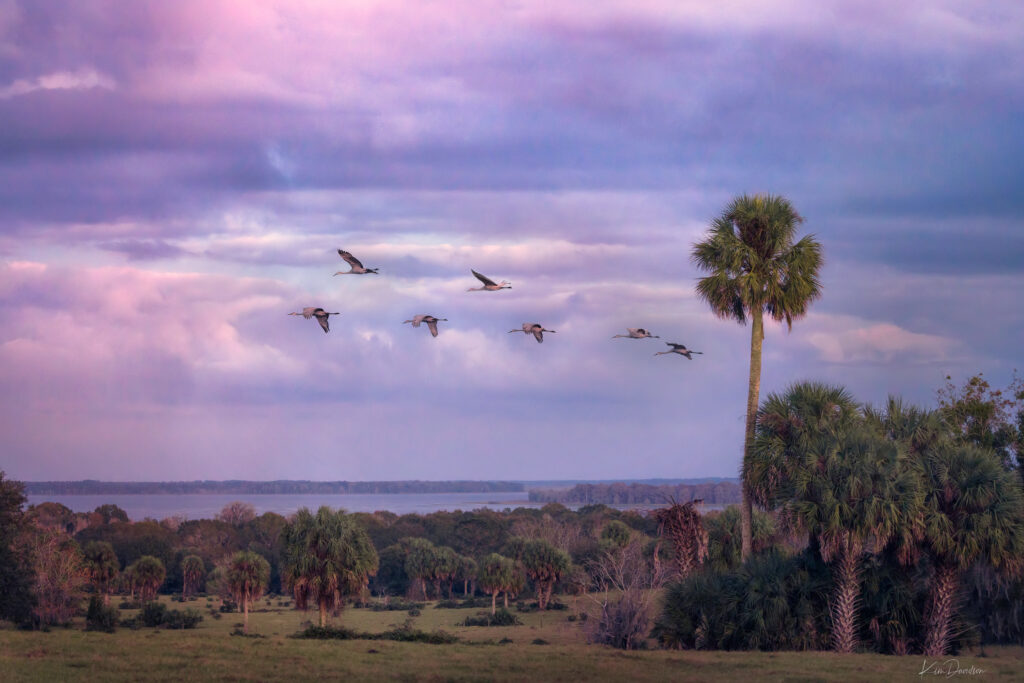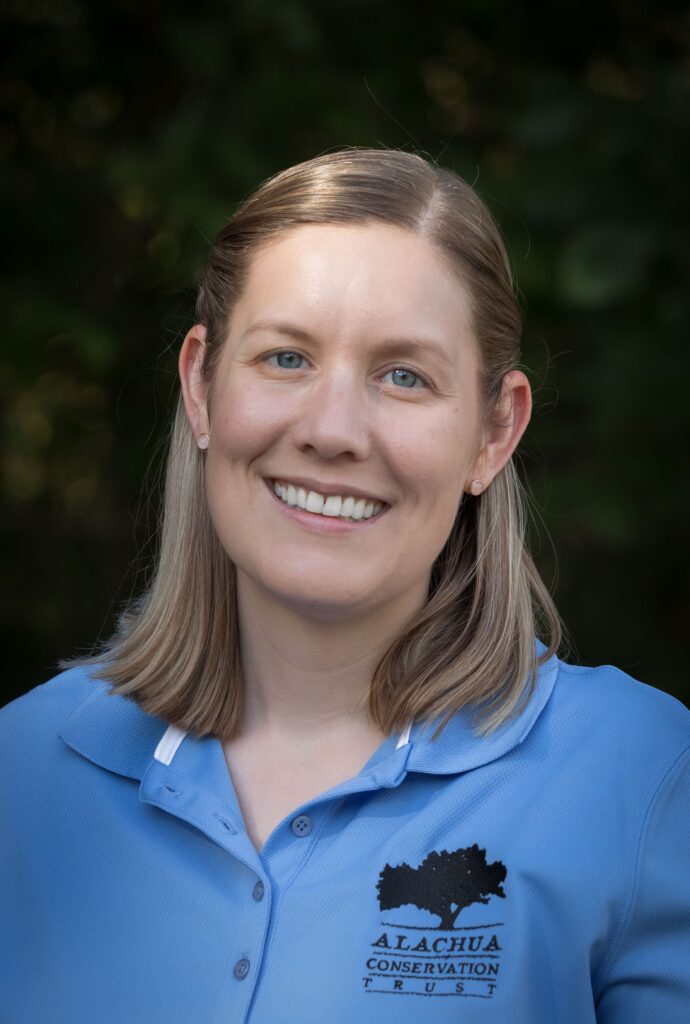By Heather Obara, Alachua Conservation Trust
As Floridians, we are no strangers to a varying climate and the intense weather events that accompany it. This summer, we have witnessed shattered heat records only to see them broken by new records the very next day.
In North Central Florida, we experienced a severe drought in the spring that caused river levels to drop dramatically before being doused by summer rains that brought those same waterways dangerously close to flood stage. In April and May, a wildfire in the Ocala National Forest burned more than 4,000 acres and closed roadways while crews battled for weeks to gain control in extremely dry conditions.
Meanwhile, ocean temperatures along our coasts caused additional concern for the long-term survival of already embattled coral. It’s clear that weather and climate conditions are increasing in intensity and Florida and its environment are feeling the effects.

Despite the warnings that it is becoming less than ideal to live here, Florida is growing rapidly. More than 1,200 new residents move here every day. Residents from South Florida continue to shift to more northern parts of the state where there is currently less development and more rural character.
In North Central Florida, where Alachua Conservation Trust (ACT) focuses a majority of its conservation efforts, undeveloped areas are becoming increasingly rare, being snapped up by cash buyers with grand plans to meet growing demand from new and existing residents for the Florida lifestyle.
These undeveloped natural lands are important for climate resiliency. Lush, forested areas across North Central Florida trap and store carbon, mitigating greenhouse gas emissions. Wetlands and surrounding forests provide an array of functions that protect natural resources and buffer homes from storm and flooding effects.
As natural lands are converted to higher density uses, the ecosystem benefits they provide are lost. And while we may not be able to reverse the environmental impacts that we are seeing entirely, we might be able to slow them down through conservation and restoration.
Conserving land is not the only solution to the climate issues we face, but it is a solution and it is cost-effective too. Conservation can be an essential part of climate resiliency strategies, avoiding the land use conversions that increase greenhouse gas emissions; protecting floodplains surrounding major riverways; preventing land fragmentation, subdivision and development in sensitive ecological areas; and restoring and managing habitat for wildlife.
At the forefront, ACT is protecting and restoring natural lands through direct acquisition and land donation. Our work includes safeguarding places of historical and ecological significance and restricting land development on privately owned lands through conservation easements.

ACT also helps guide landowners through the process of selling their land to the state or local government for conservation. Since 1988, ACT has contributed to the permanent protection of nearly 57,000 acres across Florida.
Not only do land trusts like ACT serve an important role in bringing resources to landowners, but land trusts are also landowners themselves. The most significant challenge to non-profit organizations like ACT is often cost, competing against land speculators and developers willing to pay hundreds of thousands of dollars per acre. It takes the right combination of perfect timing, adequate funding from multiple sources and a conservation-minded landowner to permanently protect a piece of land.
ACT is not alone in this endeavor. Land trusts across the country are working to pull together funds to connect large corridors of land in their own states. The actions that land trusts undertake today are a powerful tool in the ongoing battle to reduce climate impacts and, where that is no longer possible, to mitigate and buy us all time to adapt.
There is hope in collective action. That action could be as simple as recognizing that there are fewer devastating outcomes available to us and supporting land conservation. At the end of the day, the immediate benefits of conserving land now far outweigh the consequences of doing nothing.
Heather Obara is the associate director of Alachua Conservation Trust, an accredited nonprofit land trust working to protect the natural, scenic, historic and recreational resources in and around North Central Florida.
If you are interested in submitting an opinion piece to The Invading Sea, email Editor Nathan Crabbe at ncrabbe@fau.edu. Sign up for The Invading Sea newsletter by visiting here.



